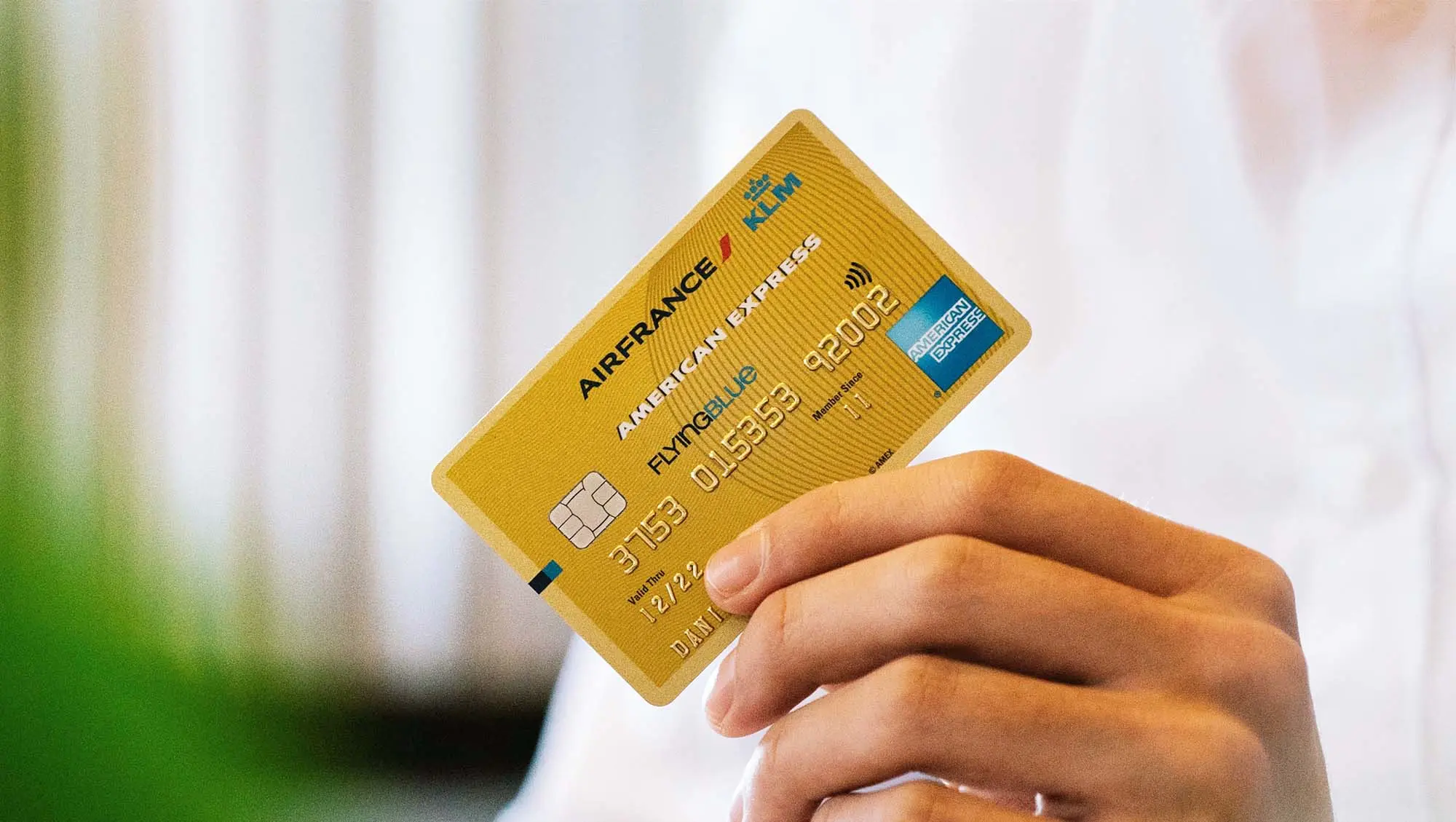Does Having Multiple Credit Cards Help Your Score
If you’re starting to build your credit in the United States, opening multiple credit cards might be a good idea. But does having multiple credit cards help your score? What are the benefits of having multiple credit cards and do they outweigh the costs?

If you’re starting to build your credit in the United States, opening multiple credit cards might be a good idea. There is undoubtedly an association between multiple credit cards and credit score, but is that correlation always good?
As you might know, your credit can be especially important in the U.S. because landlords, financial institutions, mobile phone carriers and insurance companies might check your credit before offering you services or deciding how much to charge you.
While a new credit card could hurt credit scores at first, using the cards strategically can help you build positive credit. And having several credit accounts can help you get into a better position in the future.
How new credit cards can impact your credit
The exact impact of applying for and opening a new credit card will depend on your overall credit report, if you have one, and the type of credit score. We’ll break down the impact a new card generally has on someone’s credit scores, and take a close look at how it impacts how someone new to the U.S. can build credit for the first time.
Applying can lead to hard inquiries
Credit card companies will often try to check your credit report and a credit score when you apply for a new credit card. A record of the credit check, called a credit inquiry, is added to your credit report. Or, if you don’t have a credit report yet, the inquiry may lead the credit bureau to create your credit file.
A hard inquiry, which is a credit check for a lending purpose, might hurt your credit scores. The idea is that someone who’s looking for credit might have trouble paying all their bills in the future.
A hard inquiry often doesn’t have a major negative impact. But it can be larger if you’re new to credit or have multiple hard inquiries during a short period. And, these hard inquiries can impact your credit scores even if you don’t get approved for the account. With this in mind, you’ll want to apply for credit cards thoughtfully, focusing on applying for those that you’ll likely get approved for.
New accounts can decrease the average age of your accounts
Credit scores consider how much experience you have with credit accounts based on different age-related factors, such as the age of your oldest and newest accounts and the average age of your accounts. A longer credit history is best.
Opening accounts can lower the average age of your accounts. But if you’re brand new to credit, the average age can’t go any lower, which is one reason starting with several accounts might be a good idea.
If you only have one credit card today and decide to open another in a year, the average age of your accounts will drop to six months. But if you have two today and get a third in a year, the average age only drops to nine months.
Each credit card increases your available credit
Your credit utilization ratio is a comparison of the balances and credit limits on revolving credit accounts, such as credit cards. It can be a major credit scoring factor, and a low utilization ratio is best for your credit scores.
Some people try to keep utilization under 30% as a general rule, but a single-digit utilization is even better. And it can be easier to maintain a low utilization ratio if you have multiple cards.
For example, if your card has a $300 credit limit and the balance is $150 at the end of your billing cycle, then your credit utilization ratio is 50%. But if you have two credit cards with $300 limits, the $150 balance would only result in a 25% overall utilization ratio.
Could help “thicken” your file
If you don’t have a lot of information or accounts in your credit report, you might have a “thin” credit file. Opening additional accounts and building a positive payment history can “thicken” your file and help you qualify for new accounts with better terms in the future.
Opening multiple credit cards can be an easy and potentially free way to thicken your file. But other types of accounts in your credit report can also help.
Something to keep in mind, however, is how to keep track of multiple credit cards. Each one is a responsibility, and it is important to be able to build a system to track and manage them effectively.
Over 100,000 recent newcomers trust Nova Credit
Subscribe to our newsletter for the latest tips and information on setting up life in the U.S.
Applying for multiple credit cards when you’re new to the U.S.
Getting a new credit card can be difficult when you’re brand new to the U.S., but there are several options and types of cards that could be a good fit:
Use Nova Credit to apply for an American Express card using your credit history from your home country. This is a great option if you have a credit history in your home country—if you have had a credit card or loan there, you likely do—because it will help you get premium cards with higher credit limits and great rewards.
Try to get a secured card, which often doesn’t require a good credit history because you send the card issuer a security deposit.
If you have a bank account in the U.S., some companies may offer you a credit card based on your bank account history rather than your credit history.
Credit scores don’t consider if your credit cards are from the same or different credit card companies. However, trying with different companies could make sense because a single card issuer might not want to give multiple cards to someone who is new-to-credit. When determining which card to start with, you could:
If you have a credit history in one of Nova Credit’s supported countries, apply for one of their partners’ credit cards that fits your needs.
If you do not, try a credit card that doesn’t require a hard inquiry credit check, such as the OpenSky® Secured Visa® Credit Card or Tomo card.
Then, look for options from card issuers like Capital One, and Discover that can pre-qualify you for a credit card with a soft inquiry, a type of credit check that doesn’t impact your credit scores.
Try to submit all the applications on the same day or during a short period.
Given all of these tradeoffs, you’re probably still asking yourself: “Should I get multiple credit cards?” and how you can do so while maximizing the benefits and minimizing the downside.
Ideally, you’ll get approved for the first card without a hard credit check, and it will take several days or weeks for the new account to appear on your credit report. As a result, the second company won’t hold the first application against you, which can increase your chances of getting the second card.
After these first rounds, it may be best to spread out future credit card applications to limit how many hard inquiries are added to your credit report. But also know that the same isn’t true of other types of loans, such as an auto loan. Credit scores recognize that people often compare loan offers and don’t penalize you for rate shopping for certain types of loans.
How to effectively use your credit card(s) to build credit
Once you have a new credit card, use it to build credit smartly by:
Making at least a small purchase each month. Creditors want to see that you can effectively use and pay your credit accounts, which is why having some activity in your account is better than none.
Don’t use a large portion of your credit limit. Credit scores may consider individual card’s utilization along with your overall utilization, and keeping them both low can help your credit scores.
Pay the minimum balance by the due date. Try to make the minimum payment on time, and act quickly to bring your account current if you accidentally miss the due date. Technically, the late payment can’t hurt your credit scores until you’re at least 30 days past due, but paying late could eventually lead to late payment fees and lost benefits. Be aware of the interest rates, amounts owed, and total credit outstanding. It’s all important.
Ideally, pay the balance in full. If you pay the balance in full every month, you might not have to pay any interest on your credit card purchases. Your card’s balance will still be reported when your statement period ends, which is often a few weeks before your bill’s due date, so you’ll still get credit for the activity.
The downside of having multiple credit cards
In terms of credit scoring, the big drawbacks to opening multiple credit cards come from the initial hard inquiry and impact on the age-related factors. But scoring aside, there are a few other drawbacks to consider:
It can be difficult to manage multiple cards and bill due dates.
It’s potentially costly if the cards have annual fees.
It could lead to overspending because you have more available credit.
Naturally, all of this will affect your credit score.
If you want to get multiple credit accounts but don’t want to get multiple credit cards — or are having trouble getting approved — you could look into alternatives.
Additional types of accounts to help you build credit
Thickening your credit file with non-credit card accounts can help you build credit. Even if you have more than one credit card, adding a loan to your credit report can improve your credit scores because it shows creditors you can manage different types of accounts.
You could look into a credit-builder loan or lending circle if you want an installment loan. Or try to become an authorized user on someone else’s card rather than opening the card yourself. You can also look into building your credit by adding other regular payments to your credit reports, such as your rent, utility or subscription service payments.
